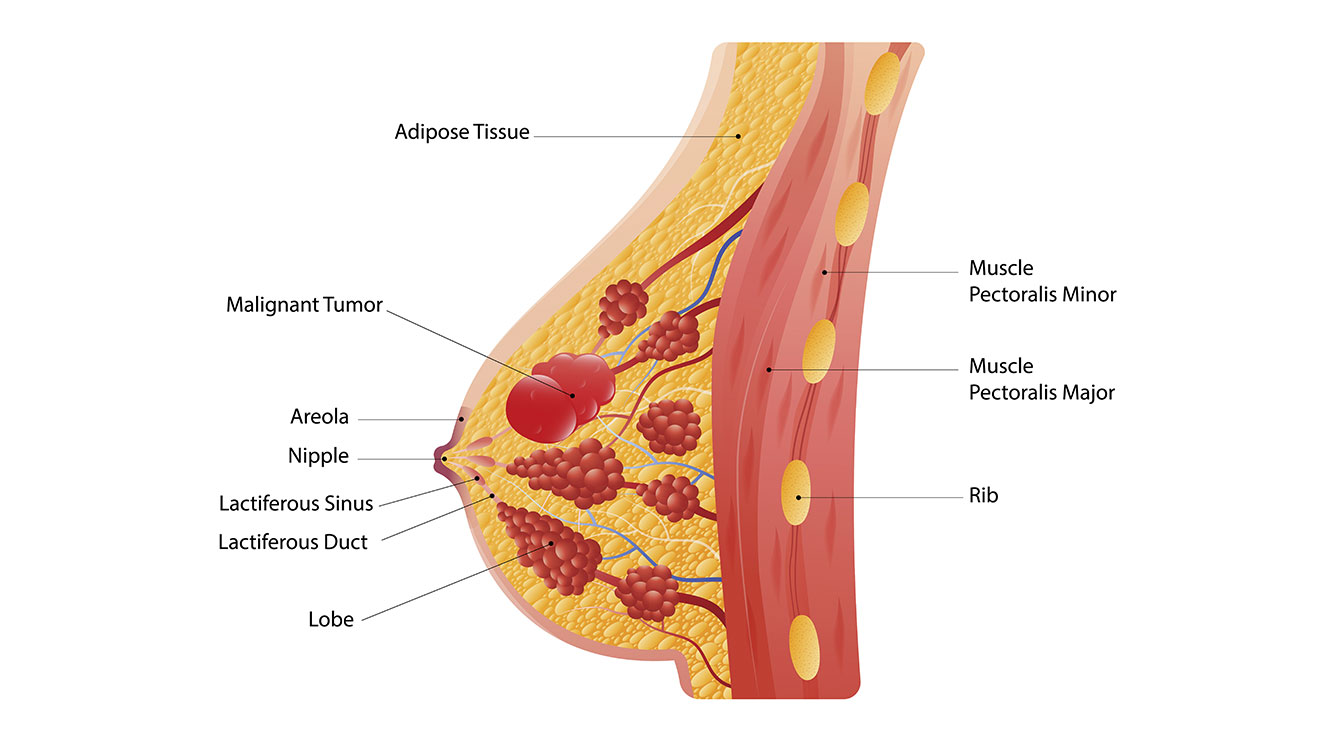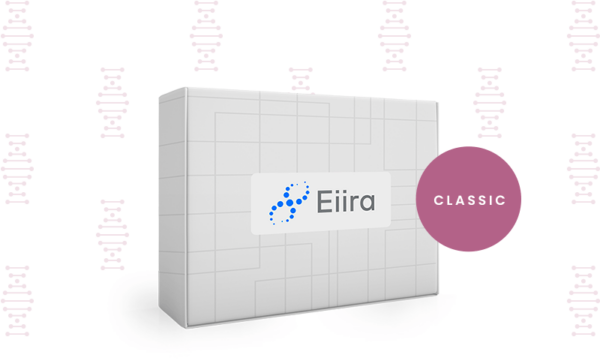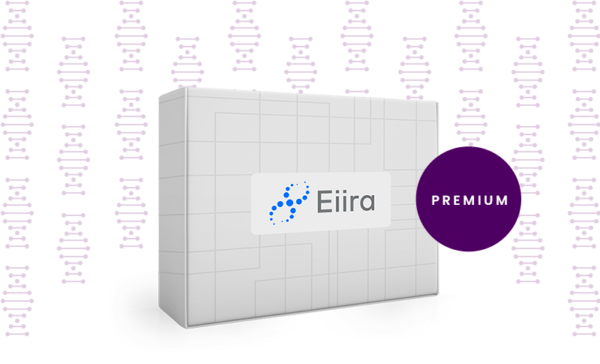
- What are BRCA genes?
- What is the probability of getting breast cancer with the BRCA genes?
- What is considered a strong family history of breast cancer?
- Who qualifies for BRCA gene mutation testing?
- At what age is BRCA testing recommended?
- What to do if the BRCA test is positive?
- Does Eiira genetic testing include testing for BRCA genes?
- Summary
Breast cancer remains a prevalent concern for many individuals, and understanding the role of genetics, particularly the BRCA genes, is critical in assessing one's risk. In this article, we delve into various aspects of the BRCA genes and their association with breast cancer.
What are BRCA genes?
BRCA1 (BReast CAncer gene 1) and BRCA2 (BReast CAncer gene 2) are genes critical in producing proteins that aid in the repair of damaged DNA.
Moreover, they play a major role in the prevention of excessive or uncontrolled cell growth. Essentially, everyone inherits two copies of these genes—one from each parent.
What is the probability of getting breast cancer with the BRCA genes?
A woman's lifetime risk of developing breast cancer is high if she inherits a harmful variant in BRCA1 or BRCA2. However, the extent of this increase varies, depending on for instance other genetic risk factors.
Not every women having a BRCA1 or BRCA2 gene mutation will get breast cancer. However, having a gene mutation puts you at a increased risk of breast cancer.
In the general population, approximately 13% of women will develop breast cancer at some point in their life. On the other hand, for women having a harmful BRCA1 variant, the risk is significantly higher. Reports indicate that between 55% and 72% of these women have developed breast cancer at 70-80.
Similarly, women inheriting a detrimental BRCA2 variant also face an increased risk, with approximately 45% to 69% developing breast cancer within the same age range.
What is considered a strong family history of breast cancer?
A strong family history of breast cancer, indicated by the occurrence of breast cancer in multiple close relatives such as mothers, sisters, or daughters, especially young, can significantly elevate a woman's risk for breast cancer. Even having a first-degree male relative with breast cancer raises a woman's risk.
Who qualifies for BRCA gene mutation testing?
You might be at increased risk of having an inherited gene mutation that increases the risk of breast and ovarian cancers — and a candidate for genetic testing — if you have:
- Been diagnosed with breast cancer before age 40.
- Diagnosed with triple-negative breast cancer
- History of two or more types of cancer
- History of ovarian cancer
- History of male breast cancer
- One or more relatives diagnosed before 50, two or more relatives diagnosed at any age with breast cancer, and one or more relatives with ovarian cancer or male breast cancer.
- Two or more relatives with BRCA gene-related cancers
- Breast cancer in any of your blood relatives, such as your parents, siblings, or children at a young age.
- BRCA1 or BRCA2 identified in any of your relatives
At what age is BRCA testing recommended?
In order to get tested for BRCA mutations you need to be 18 years old. When one wants to get tested, it is an individual choice and thus there is no recommended age.
What to do if the BRCA test is positive?
It may be worrisome to test positive for BRCA. These gene mutations increase the risk of developing breast cancer. However, not everyone with this gene mutation is vulnerable to breast cancer. People doing early diagnosis and treatment can likely overcome the condition and lead their regular lives.
These are the measures recommended for women with BRCA mutation when it comes to breast cancer:
- Annual breast screening from 25 to about 74 years of age, including breast MRI up to about 55 years of age.
- Possibility of risk-reducing mastectomy.
Does Eiira genetic testing include testing for BRCA genes?
Certainly! Genetic testing often includes the testing of BRCA genes. Eiira's genetic tests examine mutations in the BRCA1 and BRCA2 genes. The Genetic test will help determine if an individual carries a genetic predisposition to breast cancer. Genetic testing is helpful for individuals with a family history of breast or ovarian cancer. And also those who may be at higher risk due to their ancestry or personal health history.
Summary
Understanding the implications of the BRCA genes on breast cancer risk is vital for making informed healthcare decisions. Early detection, genetic counseling, and personalized risk management can significantly impact outcomes and well-being. Stay informed and take charge of your health.
Sources:
- National Cancer Institute. (2021). BRCA1 and BRCA2: Cancer Risk and Genetic Testing.
- Medlineplus.gov BRCA genetic test
- National Library of Medicine BRCA1- and BRCA2-Associated Hereditary Breast and Ovarian cancer

